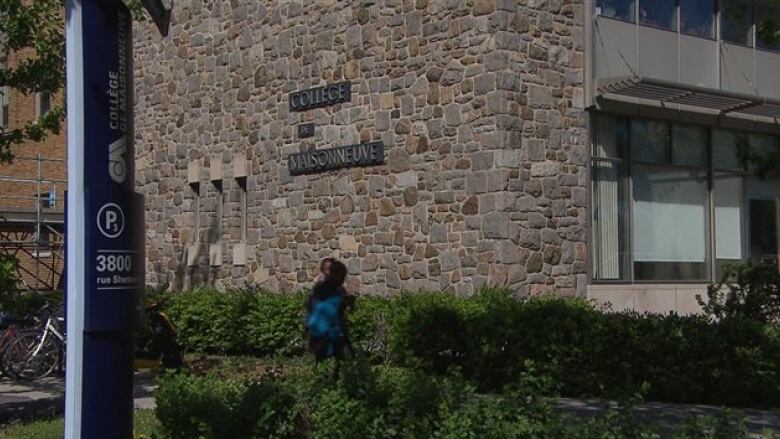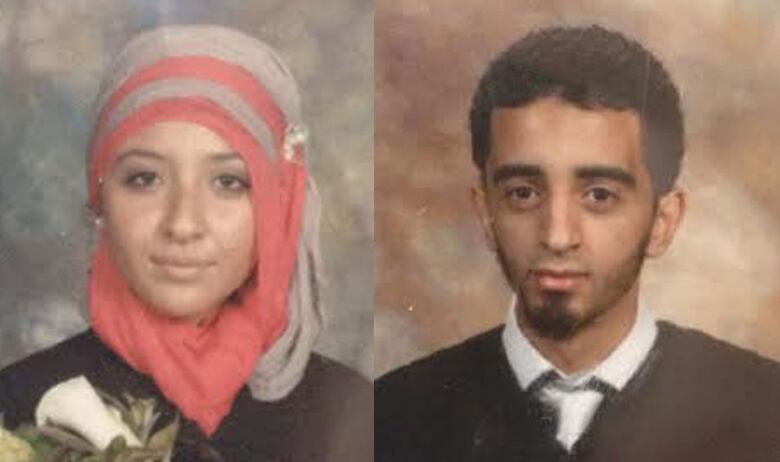Schools have role to play in preventing radicalization, report says
As venues where young people interact, schools must be involved in prevention, according to Montreal centre

With a new school year looming, Montreal'santi-radicalization centre is urging Quebecschools to play a role inpreventing students from becomingradicalized.
The revelationthatfivepost-secondary students at Montreal CEGEPCollge de Maisonneuve left the country by plane to go to the Middle East territory controlled by ISIS was part of the pushto look deeperinto the relationship between schools and radicalization.
A report published by the anti-radicalization centre andmade public Fridaysays schools are affected by radicalization more than other settings because theygather together young people who are in the process of building their social and personal identities and serve as venues for contact and interaction among young people.
Montreal Mayor Denis Coderresaid hewas pleased with the report because it means the solution won't focus only onspecific communities.
"The name of the game is you don't profile," Coderre said."The name of the game is saying that to the Muslim community,'You're at home, you're welcome. Thatyou're part of our national treasure. That you can be equal and different at the same time.'"
The centre came to theconclusions in the report by consulting documents and conducting interviews.
Who is beingradicalized?
The centre looked at 11CollgedeMaisonneuvestudents who either left for Syria, were arrestedat the airport or were awaiting trial for terrorist-related chargesand noted some similarities:
- Age: All of the students were 18 and 19 years old. Research showsradicalizationleadingto violence is an issue linked to adolescence andearlyadulthood.
- Marital status: There were several couples in the group, highlighting the role played by relationships inradicalization.
- Education: Most were in sciences, some with hopes of becoming doctors or nurses. Those aspirations may have been a motivator in their decision to leave or attempt to leave.
- Religiosity:All the students came fromrelatively stable family backgrounds with moderate Muslim religious practices. The researchers found the Quebecadolescents of Muslim faith experience identity-relatedanxiety due in part to feeling misrepresented and singled out in international and Quebec media.

International and local motivators
The report identified how various international events, such as the so-called War on Terror after the Sept. 11 attacks, led torepeated feelings of humiliation, frustration, and injustice with how the Muslim world has been treated by the West.
But those events reverberated locally as well.
The Bouchard-Taylor commission on reasonable accommodation, the Charter of Values debate and the ensuing polarization around Islam andMuslims in Quebec ledto some youthtofeellike they were under attack.
Quebec-wide changes?
Recommendations specific toCollgedeMaisonneuveincludedimplementing measures aimed at integration, fostering togetherness withinthe school community and improving communication between school staff in order to better support students who need it.

In a statement, the school said it has already put in place measures that address the concerns brought up in the report, such as more training for staff and the need for research ondifferent factors involved inradicalization.
The report also detailsa set of proposals for the provincial education ministry, including:
- Provide training for all school staff in the prevention and detection of violent radicalization.
- Encouraging schoolsto promote and recognize intercultural and community involvement by students.
- Implementing a procedure whereby secondary schools,collegesand universities communicate aboutstudents deemed to be susceptible to radicalization.
- Enablingschool administrators to regulate how psychosocial support is doled out to students deemed to be vulnerable.
According to the centre, since 2013, between 130 and 250 Canadians,20 to 30 of themQuebecers, have gone to Syria.












_(720p).jpg)


 OFFICIAL HD MUSIC VIDEO.jpg)
.jpg)



























































































